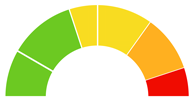Description: In the Linux kernel, the following vulnerability has been resolved:
usb: musb: sunxi: Fix accessing an released usb phy
Commit 6ed05c68cbca (“usb: musb: sunxi: Explicitly release USB PHY on
exit”) will cause that usb phy @glue->xceiv is accessed after released.
1) register platform driver @sunxi_musb_driver
// get the usb phy @glue->xceiv
sunxi_musb_probe() -> devm_usb_get_phy().
2) register and unregister platform driver @musb_driver
musb_probe() -> sunxi_musb_init()
use the phy here
//the phy is released here
musb_remove() -> sunxi_musb_exit() -> devm_usb_put_phy()
3) register @musb_driver again
musb_probe() -> sunxi_musb_init()
use the phy here but the phy has been released at 2).
…
Fixed by reverting the commit, namely, removing devm_usb_put_phy()
from sunxi_musb_exit().
Mitre ATT&CK Technical v15.1
Technical Analysis & Mitigation Measures
Vendor - Produce - Version
linux - linux_kernel - *,
linux - linux_kernel - *,
linux - linux_kernel - *,
linux - linux_kernel - *,
linux - linux_kernel - *,
linux - linux_kernel - *,
linux - linux_kernel - *,
linux - linux_kernel - *,
linux - linux_kernel - *,
linux - linux_kernel - *,
linux - linux_kernel - 6.12,
linux - linux_kernel - 6.12,
linux - linux_kernel - 6.12,
linux - linux_kernel - 6.12,
linux - linux_kernel - 6.12,
linux - linux_kernel - 6.12
The content on this website is automatically sourced from external websites such as the National Vulnerability Database (NVD), GitHub, and other security-related sources. This content is for reference purposes only, and we are not responsible for the accuracy or integrity of the information linked or displayed from these sources.


